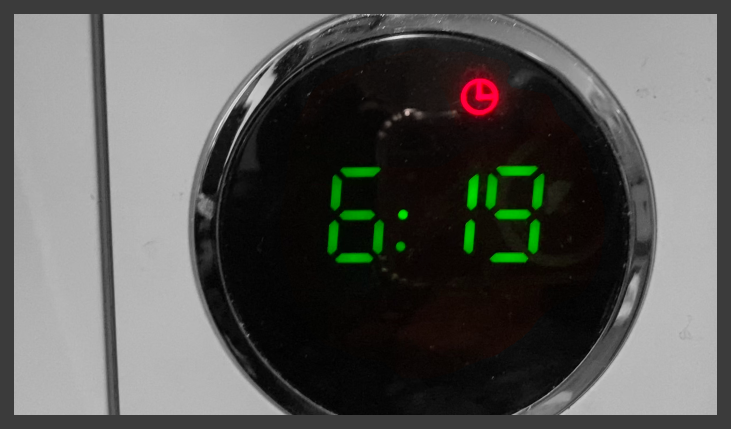I have been going through a change recently. I have been putting a large amount of energy into my pursuits. Did you not see that amazing pie recipe last week? I do not know how to break it to you, but I’m not giving 100%… let me explain.
This week I want to talk about what I have observed and some of my thoughts around the infamous word “productivity.” I think this word has become so notorious that its meaning has been diluted. I am here today to redefine the word and give you my synopsis of how productivity relates to mental, physical, and psychological health. Yes, I am separating mental and psychological health. I will explain.
First, I will define productivity and supply my theories:
I will be referencing Modern Wisdom episode #702. To define my productivity, I will begin with an idea posed in that episode; the 24-hour-you (25:00). I recommend that you listen to the episode to get the complete idea, but I will summarize here. The 24-hour-you is a system of decision making where one asks themself what their tomorrow self would want them to do. In theory, this idea helps to disconnect us from our present state of mind by introducing the perceived consequence of tomorrow. The significance is not the idea of delayed gratification or forward thinking but the time frame. Mental states fluctuate too frequently for decisions to be made in any shorter time scales. Additionally, going too far into the future diminishes the perception of the reward. This relates to the guiding principle and question strategy—questioning what decisions now mean towards your later self and the goals you aim to achieve. This is one of the reasons dieting is so psychologically challenging; the loss of 10 pounds is very significant , but when having to control eating in the moment for a goal that is weeks away, it is easier to diminish the reward and more difficult to stave off immediate pleasure. This long term focus is similar to following a guiding principle; however the 24-hour-you simplifies our focus and limits the determination and discipline required. Additionally, this could be compared to atomic habits. Atomic habits often encounter the first challenge I mentioned: the fluctuation of the mind. Again, atomic habits require a high, continual determination and persistence to a goal. Potentially finding the Goldilocks Zone for a mental framework is where the 24-hour-you becomes significant. (Original conversation of the 24-hour-you in Modern Wisdom episode #691). This strategy is not foolproof. I foresee this process becoming tedious, and ultimately we are still at the mercy of unstable human cognition. I said all of this to, in a roundabout way, define productivity: Productivity is completing the tasks, by priority and effect, that allow you to best accomplish your 24-hour-you, your guiding principle, self actualization.
Now that I have defined the word, I would like to talk more about what initially brought this idea to mind. Recently, I have been on a new level of self discovery and growth. My transition from the person I was has been dramatic. I am making this self-transition sound more spontaneous than it was. I have been building myself up for the past few years. The beginning of this fall semester however, I did hit a crescendo. I realized many things, but here are a few notable lessons that I was recently able to absorb into my psyche: time is a commodity that will always be in scarcity; I am inferior to no one, so I am also permitted to greatness; most limitations are self imposed. One of these limitations is the focus of today–productivity.
I for a long time knew the limitations of my output. I knew that I had the ability to give more, but I did not know how much I was limiting myself until I flipped the switch. Simply put, I have wasted too many hours, but I know that reflecting on my previous self in this way is meaningless. I am more grateful to have observed this reality in my youth. I have mentioned this concept before in my previous post about productivity, but our society, or at least the one I have been exposed to, encourages low expectations. We are often told to slow down, take vacations, and that we are deserving of relaxation. Mental health is extremely individualized and intricate, so I will not assume others share my likeness, but is productivity not uniquely satisfying? I believe that much of the depression and uncertainty of my generation is a byproduct of the society discouraging relentless ambition. I’m sorry that the meaning of that is vague. I expect to continue this conversation next week. For now, all I will say is that productivity, while inducing a new level of both good and bad stress, has improved my dispositions on life.
Moreover, as stated, I have reached a new level of productivity. If I had to quantify my output, I would give myself a score of 80%. The me of yester-year would be lucky to receive 40%, and I believe this is where most people settle. I would not be surprised if this is the source of discontentment and regret many individuals find themselves trapped by to be sourced. The numbers I mentioned are relative… More on this next week.
I have more to say and more that I wanted to cover here, but I am out of time for the week. I will continue this conversation next week Here is one last idea that I have already written:
Because it is correlated, I will throw in this additional idea. In Modern Wisdom # 702, Chris talks about the blindness that we often have when viewing our own productivity and what we have accomplished. Also in this episode, Chris talks about the curse of knowledge: once we know a thing, we can not understand what it is like to not know that thing. I tried to correlate this to psychology, but I can not find the appropriate term. Both of these are like the inverse hindsight bias. Instead of believing that we knew something as obvious after learning the outcome; now that we have an outcome, we can not observe what would have been obvious to a previous point in our knowledge. It seems that knowledge overrides previous “inferior” knowledge, and we are left ignorant to what we once knew– new knowledge or ability makes us ignorant to our past condition. This is why we have hindsight bias, success horizons, and my inverse hindsight bias. These ideas are fresh and still need some polishing, but here we can potentially glean a new perspective. Instead of comparing ourselves to ourselves of the past, we can objectively observe who we are now; We might take a moment to appreciate the knowledge we have gained, even if we are unaware of that knowledge’s sacrifice.
If you take anything away from this week, take away that you can do more. Listening to Chris so much recently, I have familiarized myself with the word “zero sum.” You can do more; productivity requires sacrifices, but productivity is not zero sum. I would not be exaggerating to call my recent transition enlightening. Changing my focus has reshaped my outlook on life. I will continue this conversation next week. Until then, it has been Tristan from HQ, and it will always be Tristan. Let’s go and get it y’all!
Citation
Williamson, Chris, director. #702 – 16 Lessons From 700 Episodes. Spotify, 4 Nov. 2023, https://open.spotify.com/episode/6eTcCo06hkIJWfy1piyLIg?si=d2fbad214f3746f1. Accessed 3 Dec. 2023.


